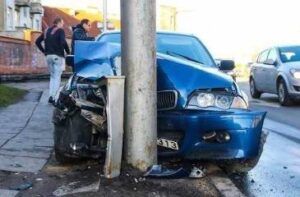In the ever-evolving landscape of transportation, ridesharing platforms like Uber and Lyft have become integral parts of our daily lives. While these services provide convenience and flexibility, the increase in their prevalence has also brought about a rise in accidents involving these vehicles. If you find yourself in the unfortunate situation of being involved in a rideshare-related accident in Virginia, it’s crucial to understand the intricacies of personal injury claims in order to protect your rights and seek the compensation you deserve.
Understanding the Legal Landscape
Personal injury claims arising from Uber and Lyft accidents in Virginia are subject to a unique set of legal considerations. Virginia follows a contributory negligence rule, meaning that if the injured party is found to be even partially at fault for the accident, they may be barred from recovering any damages. This adds an extra layer of complexity to personal injury claims, making it imperative to have a thorough understanding of the legal framework.
Determining Liability in Rideshare Accidents
One of the primary challenges in Uber and Lyft accidents is determining liability. Unlike traditional car accidents, rideshare incidents involve multiple parties, including the rideshare driver, the rideshare company, and other potentially involved motorists. Identifying the responsible party is crucial in pursuing a successful personal injury claim.
Uber and Lyft have insurance policies that cover accidents that occur during a rideshare trip. However, the level of coverage depends on various factors, such as whether the driver was actively transporting a passenger or on their way to pick up a rider. Understanding the specifics of these policies is crucial when seeking compensation for injuries sustained in a rideshare accident.
Navigating Insurance Policies and Limitations
In Virginia, rideshare companies are required to provide insurance coverage that includes at least $1 million in liability coverage per incident. This coverage is intended to protect both passengers and third parties who may be injured in a rideshare accident. However, the availability of this coverage is contingent on the specific circumstances of the accident.
For instance, if the rideshare driver is not actively engaged in a trip and the accident occurs while they are using the app but awaiting a passenger, a different set of insurance rules may apply. In such cases, the driver’s personal insurance policy might be the primary source of coverage.
Understanding these intricacies is vital in pursuing a personal injury claim involving Uber and Lyft accidents in Virginia. An experienced legal team, such as NovaLegalGroup, P.C., can provide invaluable guidance in navigating through the complexities of insurance policies and limitations.
Documenting the Accident Scene
Regardless of the circumstances surrounding the accident, documenting the scene is crucial for building a strong personal injury claim. This includes gathering information such as witness statements, photographs of the accident site, and any other relevant evidence. In rideshare accidents, it is also essential to obtain the necessary information from the rideshare driver, including their insurance details and the details of the rideshare trip.
Promptly reporting the accident to the rideshare company is another critical step. Uber and Lyft typically have established procedures for reporting accidents, and failure to adhere to these guidelines may impact the availability of insurance coverage.
Medical Attention and Documentation
Seeking medical attention immediately after an accident is not only vital for your health but also plays a crucial role in your personal injury claim. Delaying medical treatment may be detrimental to your case, as insurance providers may question the severity or causation of your injuries.
Documenting your injuries through medical records, photographs, and any prescribed treatments is essential. This documentation serves as tangible evidence of the extent of your injuries and the associated medical expenses. It strengthens your position when negotiating with insurance companies or presenting your case in court.
Statute of Limitations and Timely Action
Virginia imposes a statute of limitations on personal injury claims, including those arising from rideshare accidents. It is imperative to be aware of these limitations and take timely action to preserve your right to compensation. Failing to file a claim within the specified time frame may result in the forfeiture of your legal rights to pursue damages.
The statute of limitations for personal injury claims in Virginia is generally two years from the date of the accident. However, various factors can affect this timeline, underscoring the importance of seeking legal counsel promptly after a rideshare accident.
Why Choose NovaLegalGroup, P.C. for Your Rideshare Accident Claim?
Navigating the complexities of personal injury claims involving Uber and Lyft accidents requires a legal team with a deep understanding of Virginia’s legal landscape. NovaLegalGroup, P.C. brings a wealth of experience and a proven track record in handling rideshare accident cases.
Our seasoned attorneys are well-versed in Virginia’s contributory negligence rule and the nuances of rideshare insurance policies. We leverage this knowledge to advocate for our clients and ensure that their rights are protected throughout the claims process.
If you or a loved one has been involved in a rideshare accident in Virginia, don’t navigate the legal complexities alone. Contact NovaLegalGroup, P.C. today for a consultation with our experienced personal injury attorneys. We are committed to providing you with the guidance and representation needed to secure the compensation you deserve. Remember, your rights matter, and we are here to help you every step of the way.
